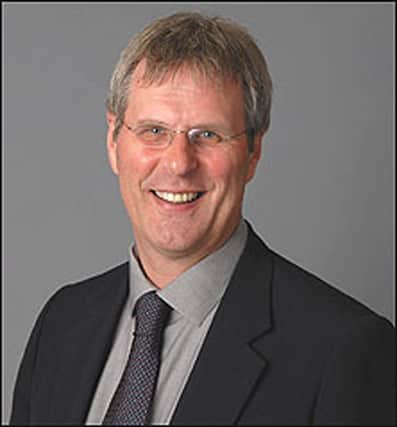Salmond inquiry: MSPs told of Alex Salmond's 'bullying'


The former Permanent Secretary told Holyrood’s committee on the Scottish Government’s handling of sexual harassment allegations against Mr Salmond, that there had been a “number of conversations” with colleagues about how to “smooth things along” and that there was an "imbalance of power” between civil servants and ministers during his five years in post.
However despite repeated questioning about whether he spoke to Nicola Sturgeon, then the Deputy First Minister, about Mr Salmond's behaviour, Sir Peter said he was bound by a civil service code of confidentiality, but added it would have been "appropriate to speak with a senior member of the administration.”
Advertisement
Hide AdAdvertisement
Hide AdPressed on who was regarded as “senior", he said he would not take part “in the jigsaw identification of ministers”.
Sir Peter, who was replaced by Leslie Evans in 2015, told the cross-party committee investigating the government’s bungled inquiry into sexual harassment allegations – which resulted in a court victory for Mr Salmond and a £512,000 legal bill for costs - that he was “well aware” of bullying behaviour in government though there were no indications or “suggestions of sexual misconduct”.
He confirmed that he was aware of “concerns” about Mr Salmond’s conduct, and added: “I knew that the former First Minister could display bullying and intimidatory behaviour. I knew the situation we were dealing with.”
Sir Peter said he was not witness to any bullying by Mr Salmond, but was “well aware” from conversations with his principle private secretary and others that it occurred. “I had a number of conversations with people who were on the end of that,” he said.
He said Mr Salmond's office usually ran very well, and staff were excited to be there, but this was "punctuated" by issues with his conduct.
SIr Peter had already told the inquiry last month in written evidence about poor ministerial behaviour. He said then: “Where there were individual Ministers whose behaviour was a cause for concern, the expectation was that the Permanent Secretary would manage these situations without recourse to formal procedures.
“Confidentiality requirements preclude me from sharing the particulars my experience but I took actions on these lines in a number of settings.”
Asked today if formal procedures have ever been implemented, Sir Peter said that “extraordinary as it may seem now, no formal complaints came forward against any elected politician in any of the environments I worked.
Advertisement
Hide AdAdvertisement
Hide Ad"In the absence of formal complaints or known egregious acts, one used informal mechanisms to move forward situations where you knew there was a concern.
“I knew that the former First Minister could display bullying and intimidatory behaviour. I knew the situation we were dealing with.”
Pressed on what all “reasonable steps were taken" to ensure the culture in the civil service was appropriate for staff, Sir Peter added: “These are endemic in situations where you've got a gross imbalance of power, in the Scottish case between the First Minister and a rank and file civil servant, and you’ve got an asymmetry of accountability. Where you haven't got a formal complaint or no known egregious act, informal ones were the only ones available, so I ensured that staffing issues were brought to the Cabinet quite regularly, particularly on the staff survey and what that said about morale.
“I made frequent oral references to the First Minister and other ministers as I went about my business on the importance of morale. Where there were specific instances and concerns I would do three things - first of all I'd make sure the staff were supported and had a sympathetic listening environment, that I understood the specific circumstances that had given rise to their concerns, what was the context, and I would ensure that the minister knew that I knew."
He added: “Lastly I would seek advice or pass information to a minister… we're not dealing with a formal complaint here so not dealing with formal procedure, but the purpose of that was yes, to seek advice because the minister would be known, and better known among his colleagues than among the civil service, and to make sure that the administration knew what we were dealing with. The civil service is entitled to expect ministers to control their behaviour and where that had gone beyond reasonable bounds, but not triggered a complaint, it didn't seem to me to be unreasonable that that should be known about.
“That’s the kind of thing one did in those circumstances. This is how Permanent Secretaries plied their trade."
A message from the Editor:Thank you for reading this story on our website. While I have your attention, I also have an important request to make of you.With the coronavirus lockdown having a major impact on many of our advertisers - and consequently the revenue we receive - we are more reliant than ever on you taking out a digital subscription.Subscribe to scotsman.com and enjoy unlimited access to Scottish news and information online and on our app. With a digital subscription, you can read more than 5 articles, see fewer ads, enjoy faster load times, and get access to exclusive newsletters and content. Visit https://www.scotsman.com/subscriptions now to sign up.
Our journalism costs money and we rely on advertising, print and digital revenues to help to support them. By supporting us, we are able to support you in providing trusted, fact-checked content for this website.
Joy Yates
Editorial Director
Comments
Want to join the conversation? Please or to comment on this article.